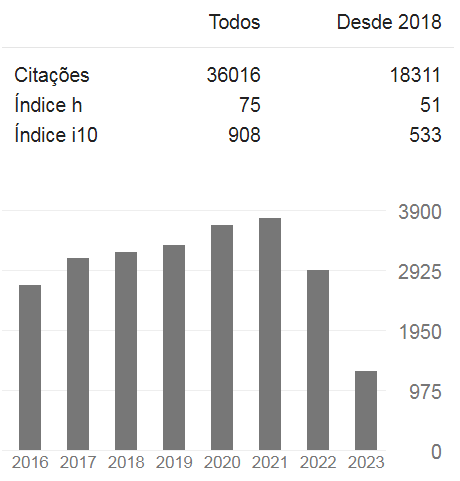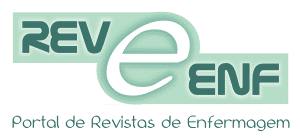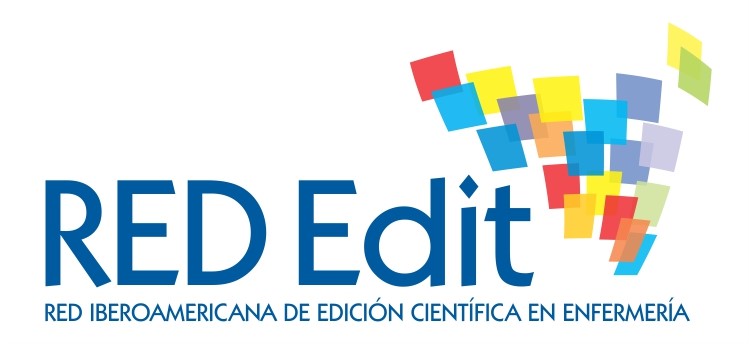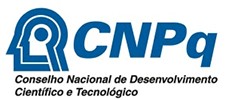Discharge from the neonatal intensive care unit and care at home: an integrative literature review
DOI:
https://doi.org/10.35699/reme.v17i4.50210Keywords:
Patient Discharge, Family, Infant, Premature, Professional-Family RelationsAbstract
AIM: to describe the state of the art of knowledge relative to family experiences with NICU discharge and post-discharge of low birth weight and preterm infants. METHOD: Integrative review of studies indexed in the following online libraries: Cumulative Index to Nursing and Allied Health Literature, Latin-American and Caribbean System on Health Sciences Information and Medical Literature and Retrieval System On Line, using the descriptors: neonatal intensive care, parents, patient discharge; prematurity and family. RESULTS: Four themes composed these findings: influences of the neonatal intensive care unit; difficulties with feeding; daily care at home: insecurity and vigilance; family support. CONCLUSION: The family presented low security and autonomy for care at home, and the interactions with professionals encourage these feelings.Downloads
References
Cleveland LM. Parenting in the Neonatal Intensive Care Unit. JOGNN. 2008;
:666-91.
Wernet M. Experiência de tornar-se mãe na Unidade de Cuidados Intensivos
Neonatal. [tese]. São Paulo (SP): Escola de Enfermagem da Universidade de
São Paulo; 2007. 134p.
Shin H, White-Traut R. The conceptual structure of transition to motherhood
in the neonatal intensive care unit. J Adv Nurs. 2007; 58:90-8.
Lupton D, Fenwick J. They’ve forgotten that I’m the mum: constructing and
practising motherhood in special care nurseries. Soc Sci Med. 2001; 53:1011-21.
Wigert H, Johansson R, Berg M, Hellström AL. Mothers’ experience of having
their newborn child in a neonatal intensive care unit. Scand J Caring Sci. 2006;
:35-41
Herbst A, Maree C. Empowerment of parents in the neonatal intensive care
unit by nurses neonatal. Health SA Gesundheit. 2006; 11(3):1-13.
Sales CA, Alves NB, Vrecchi MR, Fernandes J. Concepções das mães sobre os
filhos prematuros em UTI. Rev Bras Enferm. 2006 jan; 59(1): 20-4.
Whittemore R, Knalf K. The integrative review: updated methodology. J Adv
Nurs. 2005; 52:546-53.
Menezes KDS, Silveira RCCP, Galvão CM. Revisão integrativa: método de
pesquisa de incorporação de evidências na saúde e na enfermagem. Texto
Contexto Enferm. 2008; 17:758-64.
Hall EOC, Brinchmann BS. Mothers of preterm infants: experience of space,
tone and transfer in the neonatal care unit. J Neonatal Nurs. 2009; 15:129-36.
Borck M, Santos EKA. Terceira etapa método canguru: convergência
de práticas investigativas e de cuidado com famílias em atendimento
ambulatorial. Rev Gaúcha Enferm. 2010; 31:761-8.
Souza NL, Pinheiro-Fernandes AC, Clara-Costa IC, Cruz-Enders B, et al.
Domestic maternal experience with preterm newborn children. Rev Salud
Publica. 2010; 12:356-67.
Costa SAF, Ribeiro CA, Borba RIH, Ballieiro MMFG. A experiência da família
ao interagir como recém-nascido em domicílio. Esc Anna Nery Rev Enferm.
; 13:741-9.
Duarte AS, Santos WS, Silva LDB, Oliveira JD, Sampaio KJAJ. Promoção
da saúde às genitoras de bebês prematuros: ação da enfermagem na alta
hospitalar. Rev Rene. 2010; 11:162-70.
Rabelo MZS, Chaves EMC, Cardoso MVLML, Sherlock MSM. Sentimentos e
expectativas das mães na alta hospitalar do recém-nascido prematuro. Acta
Paul Enferm. 2007; 20:333-7.
Couto FF, Praça NS. Recém-nascido prematuro: suporte materno domiciliar
para o cuidado. Rev Bras Enferm. 2012; 65(1):19-26.
Braga DF, Machado MMT, Bosi MLM. Amamentação exclusiva de recémnascidos prematuros: percepções e experiências de lactantes usuárias de um
serviço público especializado. Rev Nutr. 2008; 21:293-302.
Lee TY; Lee TT; Kuo SC. The experiences of mothers in breastfeeding their
very low birth weight infants. J Adv Nurs. 2009; 65:2523–31.
Braga PP, Almeida CS, Leopoldino IV. Percepção materna do aleitamento no
contexto da prematuridade. Rev Enferm Cent-Oeste Min. 2012; 2:151-8.
Wheeler BJ. Human-milk feeding after discharge. Neonatal Netw. 2009; 28:381-9.
Blomqvist YT, Nyqvist KH. Swedish mothers’experience of continuous
Kangaroo Mother Care. J Clin Nurs. 2011; 20:1472-80.
Linderberg B, Axelsson K, Ohrling K. Taking care of their baby at home but with
nursing staff as support: the use of videoconferecing in providing neonatal
support to parents of preterm infants. J Neonatal Nurs. 2009; 15:47-55.
Fegran L, Fagermoen MS, Helseth S. Development of parent-nurse
relationships in neonatal intensive care units – from closeness to detachment.
J Adv Nurs. 2008; 64:363-71.
Vieira CS, Mello DF, Oliveira BRG, Furtado MCC. Rede e apoio social familiar
no seguimento do recém-nascido pré-termo e baixo peso ao nascer. Rev.
Eletr. Enf. [Internet]. 2010;12(1):11-9. [Citado em 2013 jan 15]. Disponível em:
http://www.fen.ufg.br/revista/v12/n1/v12n1a02.htm.
Vieira CS, Mello DF. O seguimento da saúde da criança pré-termo e de
baixo peso egressa da terapia intensiva neonatal. Texto Contexto Enferm.
; 18:74-82.
Lopes GL, Anderson KH, Feutchinger J. Transition of premature infants from
hospital to home life. Neonatal Netw. 2012; 31:207-14.
Sneath N. Discharge teaching in the NICU: are parents prepared? An
integrative review of parents’ perceptions. Neonatal Netw. 2009; 28(4):237-46.
Fidler HL; McGrath JM. Talk to me: clear communication is the best
protection. Newborn Infants Nurs Rev. 2010; 10(3):119-21.
Cockcroft S. How can family centred care be improved to meet the needs
of parents with a premature baby in neonatal intensive care? J Neonat Nurs.
; 18:105-10.
Correia LL, Carvalho AE, Linhares MB. Verbal contents expressed by mothers
of preterm infants with clinical emotional symptoms. Rev LatinoAm Enferm.
Jan/Feb; 16(1):64-70.
Latva R, Korja R, Salmelin RK, Lehtonen L, Tamminen T. How is maternal
recollection of birthexperience related to the behavioral and emotional
outcome of preterm infants? Early Hum Dev. 2008; 84:587-94.
Muller-Nix C, Forcada-Guex M, Pierrehumbert B, Jaunin L, Borghini A,
Ansermet F. Prematurity, maternal stress and mother-child interactions. Early
Hum Dev. 2004; 79:145-58.
Scherf RF, Reid KW. Going home: what NICU nurses need to know about
home care. Neonatal Netw. 2006; 25:421-5.
Higman W, Shaw K. Nurses’ understanding about the delivery of family
centered care in the neonatal unit. J Neonatal Nurs. 2008; 14:193-8.
Published
How to Cite
Issue
Section
License
Copyright (c) 2013 Reme: Revista Mineira de Enfermagem

This work is licensed under a Creative Commons Attribution 4.0 International License.






































